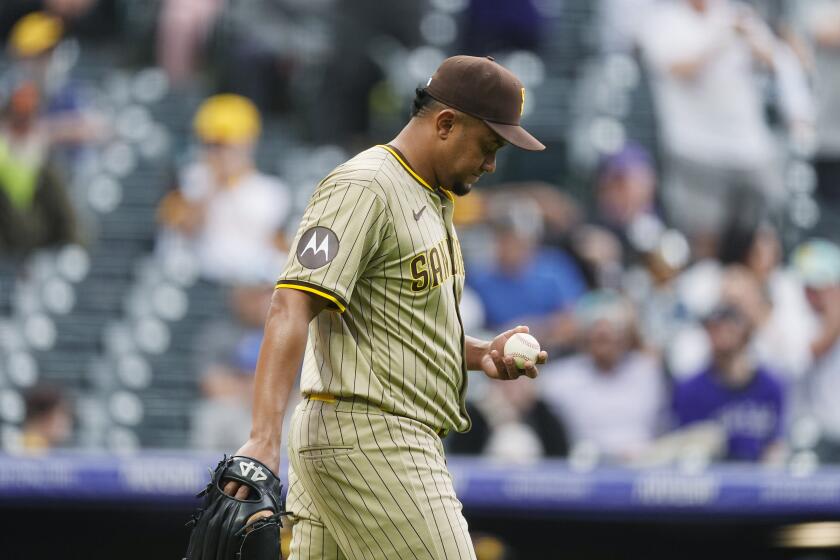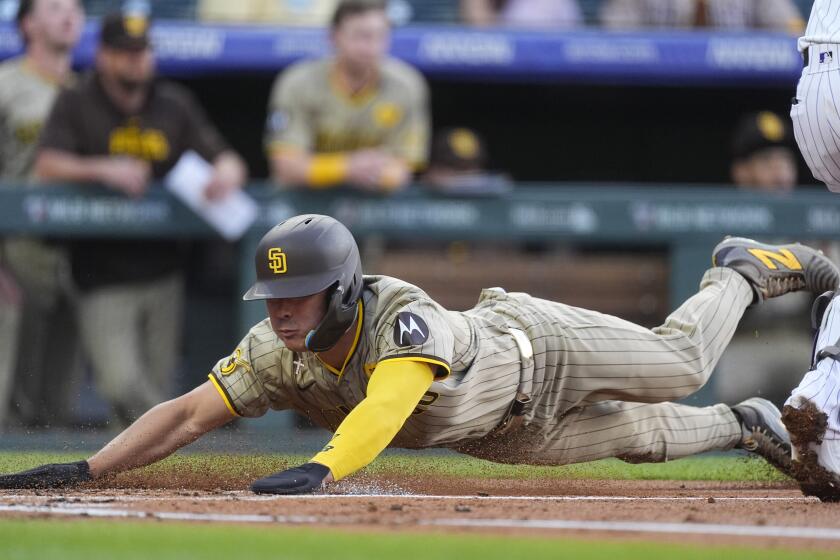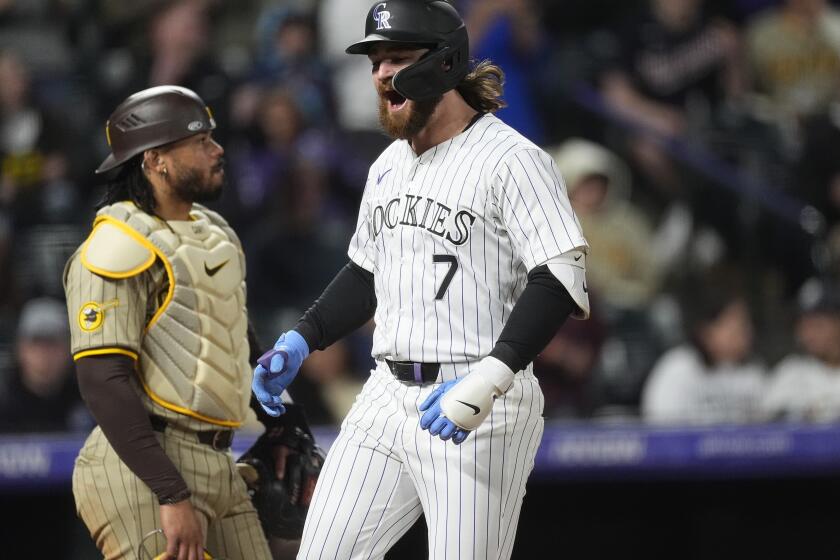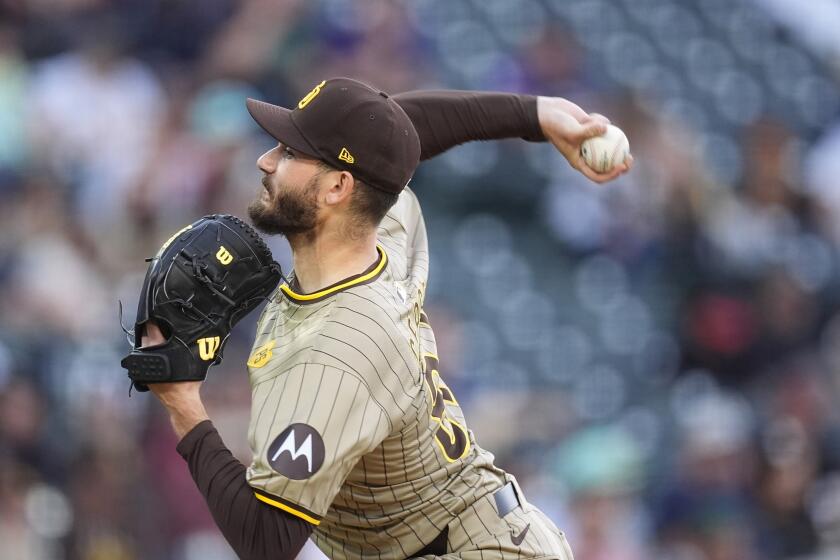Chargers hire Maas, meet with city
The Chargers and city officials met Monday shortly after the team made a significant addition to its effort to get a stadium built in San Diego.
The NFL franchise announced that Fred Maas, who once headed up the city’s downtown redevelopment agency, will join the team in its quest to launch a citizens initiative toward a November ballot measure aimed at getting public assistance in building a stadium.
Chargers sources have said the team plans to spend as much as $10 million on the stadium election process, which begins with the launch of a citizens initiative. Others familiar with the cost of such efforts said that cost is reasonable to assume.
Maas, a man familiar in business and political circles, was present at a Monday afternoon meeting at Spanos’ home that included Mayor Kevin Faulconer and was described by participants as the sides touching base and setting up plans for the next steps in the negotiation process.
“The really encouraging thing is I believe to my very core Dean is committed to finding a solution in San Diego,” Maas said Monday night.
Mass was hired to help the Chargers reboot a stadium push here after the team’s plan for a joint stadium with the Oakland Raiders in the Los Angeles suburb of Carson was rejected by NFL owners last month. The owners approved a stadium for Inglewood planned by the St. Louis Rams and gave the Chargers and option to join them if they couldn’t work out a stadium deal in San Diego.
“(Maas) has been around San Diego a long time,” Chargers chairman Dean Spanos said on a video posted to the team’s web site. “… He’s very familiar with all the political aspects of what goes on in the city, how all that works. His knowledge of San Diego as a whole will help us.”
Special counsel Mark Fabiani, whose aggressive style has angered fans and local leaders, continues to work for the Chargers and will be involved in the stadium process. But, as had been expected, Fabiani’s role has been altered. Though Fabiani has headed the team’s efforts in San Diego and Los Angeles since 2002, Spanos said Maas “is in charge of this particular initiative, this stadium effort going forward.”
Maas was the stadium point man for former Mayor Jerry Sanders, as well as the former director of the Centre City Development Corp.
The Chargers suggested to Faulconer that he consider Maas to head the city’s side of stadium negotiations in 2014.
After meetings with Faulconer, Maas withdrew from consideration, citing concerns about the commitment he would have to make considering all that the new mayor was working through. He later expressed his respect for Faulconer and others involved in the process.
It was around that time in late 2014 that many people close to Spanos began to indicate he had essentially given up on getting a stadium deal in San Diego.
The Chargers said in a statement that Maas “will advise Spanos and the Chargers on the Citizens’ Initiative process, including the exploration of possible stadium financing plans that would be publicly acceptable, the drafting of the initiative document, and the creation of the campaign infrastructure necessary to give the Citizens’ Initiative the best possible chance of success. Maas will be working closely with an established team of legal, financial and land-use advisers.”
Maas has a broad background, including sports-related development businesses and real estate projects. According to the Chargers’ website he is the president and managing director of MRV Systems LLC, a manufacturer of marine robotic vehicles for the oceanographic, intelligence and defense industries, and is the founder and CEO of Pacific EcoCompanies LLC, an investment and advisory firm focused on clean technologies and sustainable development.
“Mr. Maas has a wealth of experience on the stadium issue, and we welcome his addition as a positive development,” Faulconer spokesman Craig Gustafson said in a statement Monday night. “Mr. Maas is well versed in the opportunities and challenges of the various options Mr. Spanos is considering for a San Diego stadium solution. We anticipate further meetings over the coming weeks.”
Given his work on redevelopment in the city’s core, some interpret that Maas’ inclusion in the Chargers’ efforts confirms that the team will pursue a downtown stadium instead of one in Mission Valley. Spanos said that is not necessarily the case.
“That’s why I brought Fred on,” Spanos said. “I want somebody who is going to look at both sites. We have to look at it from a financial perspective and what are the chances the public is going to support one of these projects and give us the best chance to get a stadium.”
Faulconer’s task force selected the current Mission Valley site of Qualcomm Stadium for a new football facility. In addition to other benefits of that location, Faulconer said it was the only one where a stadium project could be possible within the NFL’s timeline set last year. He has said should that dynamic change, he would be open to other possibilities.
An August proposal from the city and county, which would have needed cooperation from the Chargers and approval by a simple majority of city voters, included $350 million in public money — $200 million from the city and $150 million from the county. The remainder would have been $200 million from the league, $362.5 million from the Chargers and $187.5 million from seat licenses.
The Chargers last year walked away from the negotiating table with local officials only after a short while to focus almost exclusively on their Los Angeles plan. However, there were reports that the NFL franchise was working on a stadium proposal and initiative here if things didn’t pan out up north.
After selecting the Inglewood project, the NFL offered the Chargers and Raiders an additional $100 million each toward new hometown stadiums if agreements can be reached.
Staff writer David Garrick contributed to this report.






